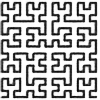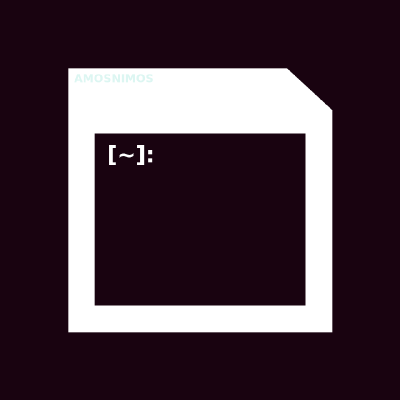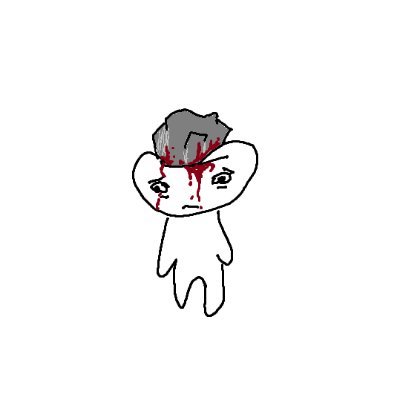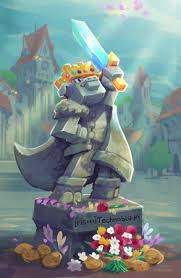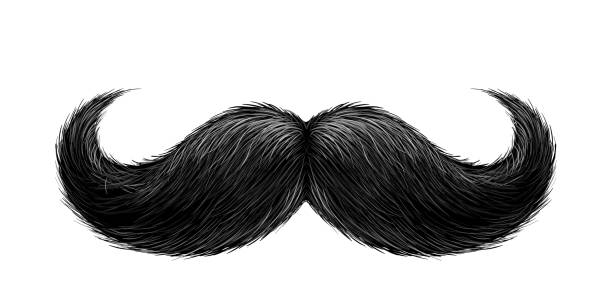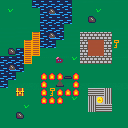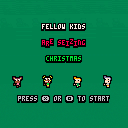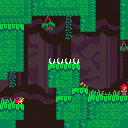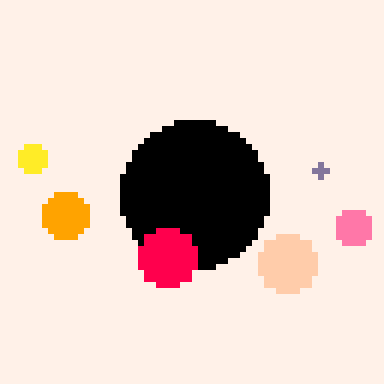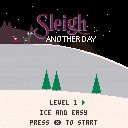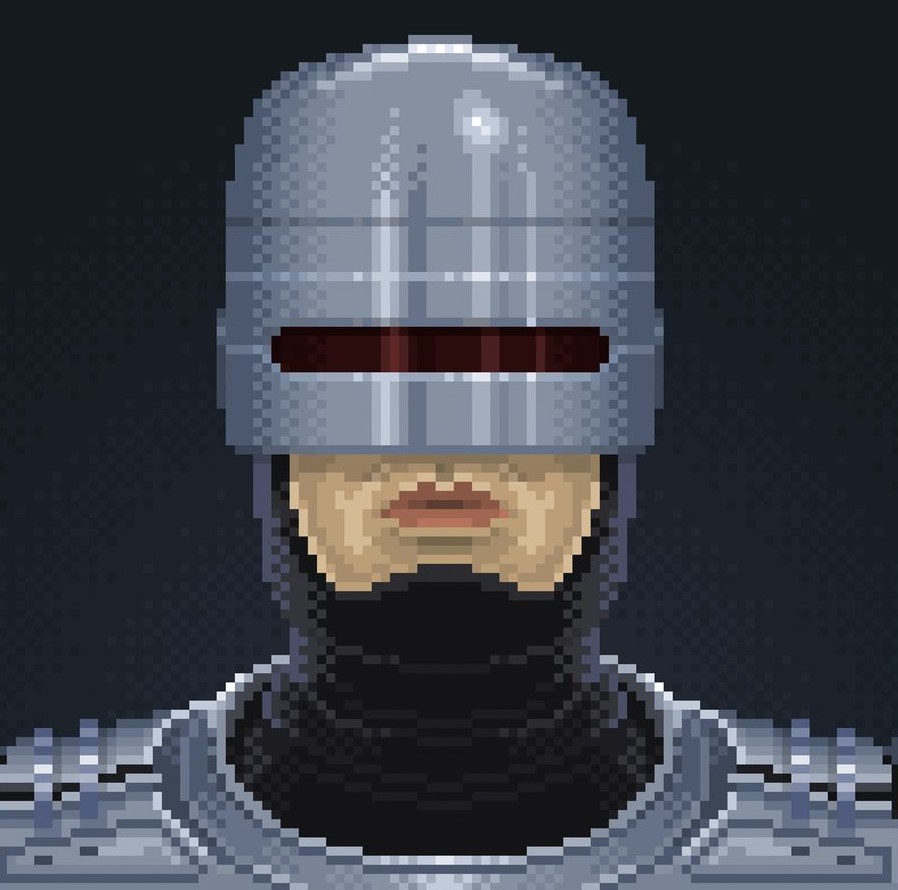- item 1
Inicializar o tabuleiro vazio (8x8)
tabuleiro = criar_tabuleiro(8, 8)
Gerar as primeiras 3 peças
pecas = gerar_pecas_iniciais()
Variáveis de controle
pontuacao = 0
fim_do_jogo = False
- item 2
def criartabuleiro(linhas, colunas):
return [[' ' for in range(colunas)] for _ in range(linhas)]
def exibir_tabuleiro(tabuleiro):
colunas = 'ABCDEFGH'
for i, linha in enumerate(tabuleiro):
print(f"{colunas[i]} " + " ".join(linha))
print()
-
item 3
def gerar_pecas_iniciais():
pecas_possiveis = [
[(0, 0), (0, 1), (0, 2)], # Linha reta
[(0, 0), (1, 0), (2, 0)], # Linha reta vertical
[(0, 0), (1, 0), (1, 1)], # L
[(0, 0), (0, 1), (1, 1)] # T
]
return [random.choice(pecaspossiveis) for in range(3)] - item 4
def posicionar_peca(tabuleiro, peca, linha, coluna):
if not verificar_espaco(tabuleiro, peca, linha, coluna):
- item 1
Inicializar o tabuleiro vazio (8x8)
tabuleiro = criar_tabuleiro(8, 8)
Gerar as primeiras 3 peças
pecas = gerar_pecas_iniciais()
Variáveis de controle
pontuacao = 0
fim_do_jogo = False
-
item 2
def criartabuleiro(linhas, colunas):
return [[' ' for in range(colunas)] for _ in range(linhas)] -
item 3
def gerar_pecas_iniciais():Definir os formatos das peças (por exemplo, L, T, quadrado, linha)
pecas_possiveis = [
[(0, 0), (0, 1), (0, 2)], # Linha reta
[(0, 0), (1, 0), (2, 0)], # Linha reta vertical
[(0, 0), (1, 0), (1, 1)], # L
[(0, 0), (0, 1), (1, 1)] # T
]
return [random.choice(pecaspossiveis) for in range(3)] - item 4
def posicionar_peca(tabuleiro, peca, linha, coluna):
for (dx, dy) in peca:
if tabuleiro[linha + dx][coluna + dy] != ' ':
return False # A peça não pode ser colocada aqui (colisão)
Feature Suggestion: Cart Forking and Collaboration
I wish there was a way to track when a cart from the BBS is improved or modded or altered, linking it back to the original in some way. This could function like a "fork," showing all variants and allowing users to see the evolution of a cart over time.
With this feature, we could collaboratively work on adding features and fixing bugs, even through small individual contributions. Over time, these efforts would add up, leading to polished and feature-rich games and software.
Isn’t that the beauty of open-sourcing carts? A system like this would make it easier for the community to come together and create something truly amazing!
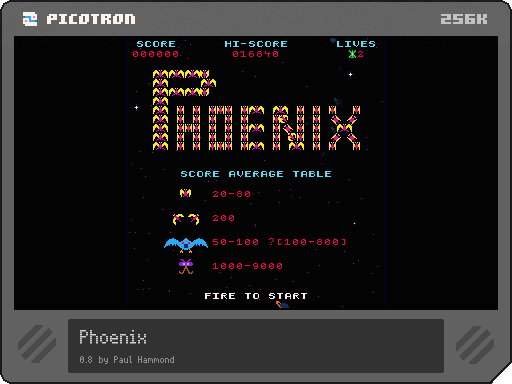
Feature added:
- Added more shading on sprites
- Added "wasd" + "e" + "space" as optional keyboard control
i wanna get back into gamedev sometime this year, or at least try to, and this little thing seems the perfect way to start that journey.
unfortunately i dont know how to change my username, so this accounts name will forever reflect a 12 year old pipo, one with foolish ambitions and thought they wouldnt be a girl in the future lol
this is just me yammering. i wont post much and its unlikely anyone will see this but, sometimes its nice to talk out in the void
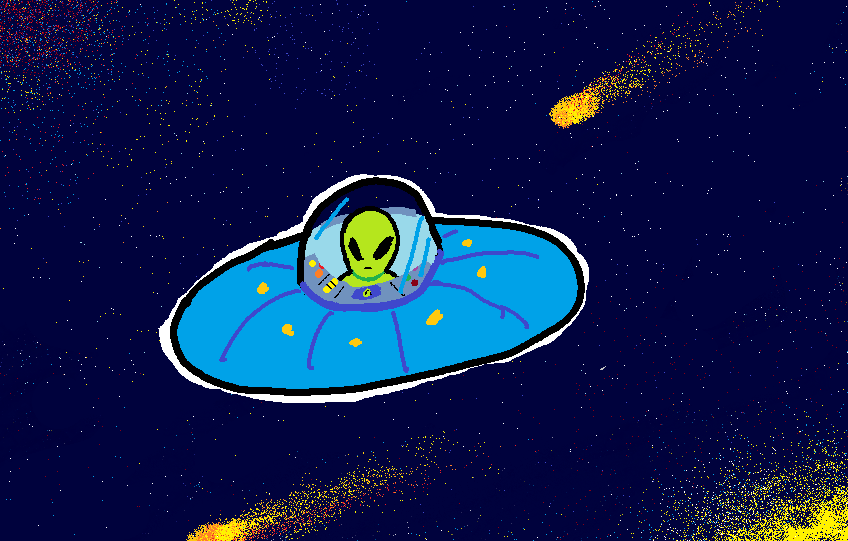
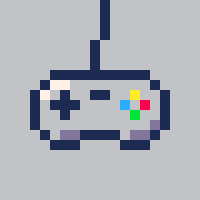
This Lua script is designed to copy files from a directory in /appdata/system/lib to the corresponding destination in /system/lib. The key functionality of this script allows the user to modify the system libraries (e.g., gui_ed.lua in this case) in /appdata/system/lib and have those modified versions persist even after a reboot.
Key Features:
Directory Syncing:
The script checks for files in the /appdata/system/lib directory.
It copies each file to the matching location in /system/lib based on the filenames. For example, if gui_ed.lua is modified in /appdata/system/lib, it will be copied to /system/lib/gui_ed.lua replacing the original.
Persistence of Edits:
Any changes made to files in /appdata/system/lib will persist after reboot, ensuring that the customized libraries remain intact and are used when the system restarts.
Works with Any /system Directory:
The script can be adapted to copy files from any directory within /appdata/system to the equivalent directory in /system, not just /lib. It can be used to update any files in the /system/ directories by making minor changes.
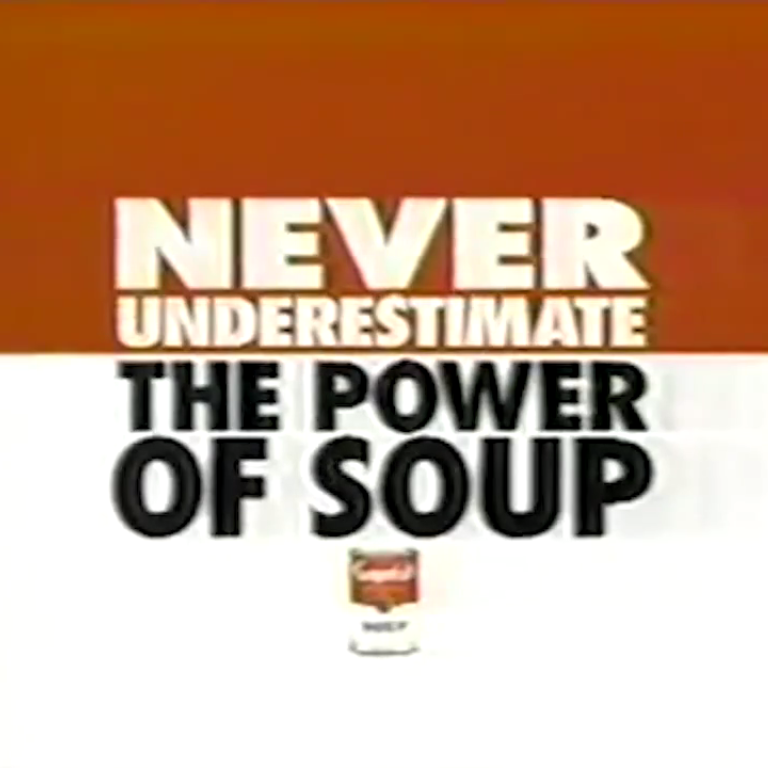
One of my biggest takeaways from this project is the concrete understanding of the dangers of Feature Creep, as well as the importance of having realistic project expectations and proper planning. In software development, it’s inevitable to encounter bugs and features that need to be adjusted based on real-world scenarios. These tasks take up a significant amount of time, which is often unpredictable. Therefore, it is essential to allocate sufficient time for debugging and adjustments, instead of continuously trying to integrate new features into the program.
Moreover, the dangers of Feature Creep were vividly demonstrated in this project. In my past programming experiences, I rarely paid attention to the memory usage of the program. As a result, I often wrote code with higher readability and decoupled various modules to make them easier to modify and debug. However, this approach inevitably led to code bloat, which I didn’t consider a problem until now. Given the limited code capacity of the Pico-8 engine, I encountered memory issues during the final stages of the project and had to spend extra time trimming down my code. Fortunately, I realized the problem of Feature Creep midway through development and decided to cut half of the planned levels and monsters. Otherwise, the memory constraints would have caused even more headaches.

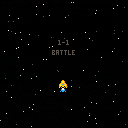
上下左右键:移动 Arrow keys: Move 矢印キー: 移動
Z键:确认 Z key: Confirm Zキー: 決定
X键:取消 / 退出 X key: Cancel / Exit Xキー: キャンセル / 終了
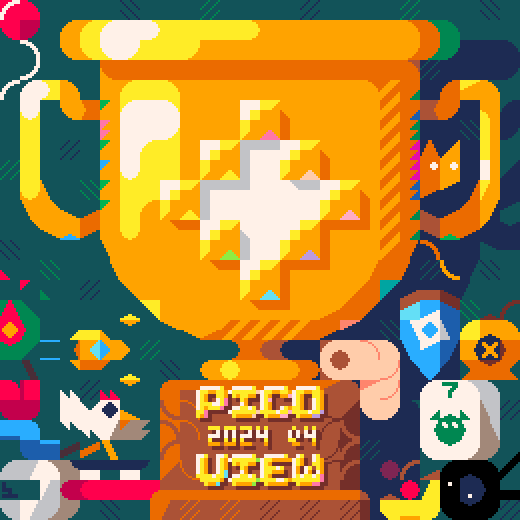
Cover Art by @Werxzy
This is the 15th issue of Pico-View that covers the latest news, tips and tricks from developers, and looks back on the entire year of 2024 to reveal the best games that came out this year, and more you may have missed!
Read the full issue here: https://nerdyteachers.com/PICO-8/Pico-View/15
Contents:
- Shadowbox Pixel Art
- PICO-8 on Antstream Arcade
- Extended Maps and Palettes of Samurise
- Everyone Draw Interview
- Everyone Draw PICO-8 Mural
- Featured Game Review
- Christmas Past, Present & Future
- Top 10 Games of 2024
- Top Rated Games on Itch.io
- Updated Top 200
- Data Packing for Picodex Dual
- Lookback Pico Playtime
- New Debugging Resource
- Picotron Textmode editor
- December Event Winners!
- Pixel Art Gallery
Hello there! :p
My name is That One Entertainer, also known as T_O_E.
One day I got bored, browsed the internet and found this cool website, so I though why not give it a try?
My goal is to learn about programming and make my own simple games in the process. I started with scratch and even though I'm also currently a studying Java, I want to try something else entirely. That's when I found this website, played other peoples games and got inspired to try and create something of my own. Whether I'll stay or leave I'm not too sure about, but hopefully I'll learn something in the process, so we'll see.
I'm also keen to try and create my own music, pixel art and other things here, as those are also my interests I'd like to get better at.
Thank you for reading this introductory post :p

A simple Christmas themed game with elements of humor. This game was created for the PICO-8 Advent Calendar Jam 2024. Use the ⬅️, ➡️, ⬆️ and ⬇️ arrow keys as quickly as you can to ease the anger of the fellow kids. Unfortunately I had no enough time to work on the sound effects, but I had a very fun time creating the characters' pixel art.
Sleigh Another Day
Santa is training for the big day. Help him navigate his sleigh through the snowy mountains of Lapland and return safely to his workshop in this procedurally-generated one-button game.
How to Play
One button: press X to jump/fly.
In later levels you can collect magic coins which allow you to press X again while airborne to extend your flight.
Credits
Code by I Am Penguin
Particle effects adapted from example by Nerdy Teachers
Notes
This is my first Pico-8 game. Getting the difficulty right in a procedurally generated game has been difficult, so feedback is welcome. You may need to try some of the later levels a few times before you're successful and remember where to press X, but I've tried to make it fairly easy for casual gamers like me.
.jpg)








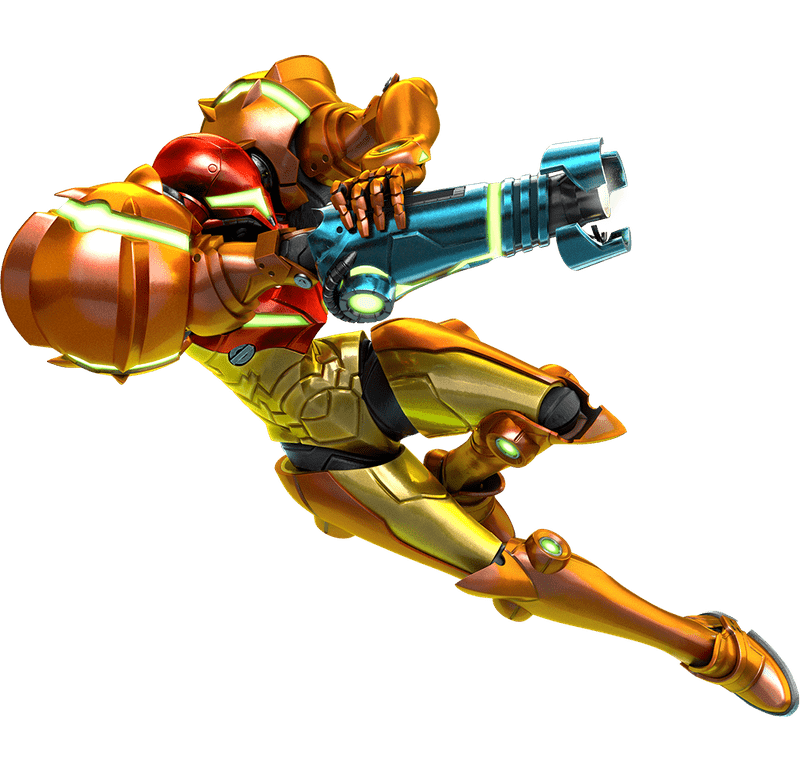

 3 comments
3 comments
